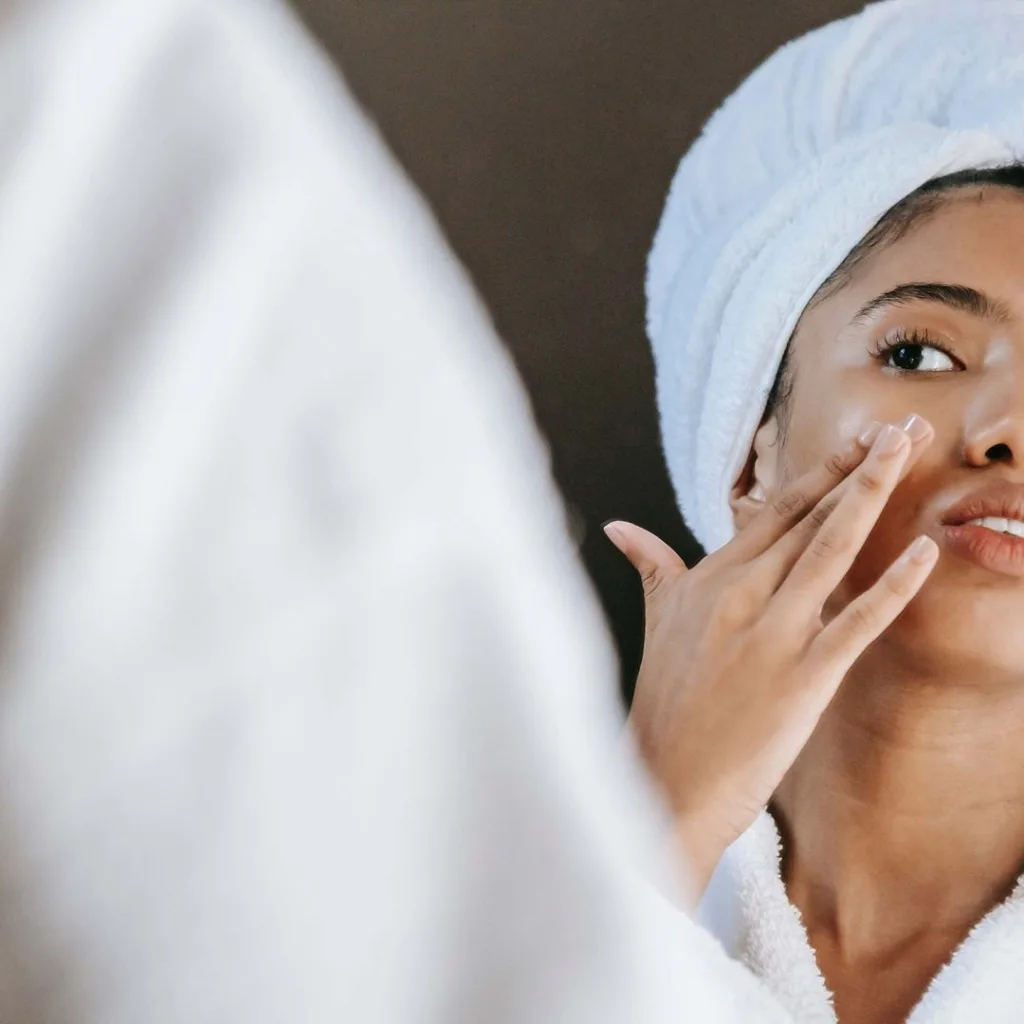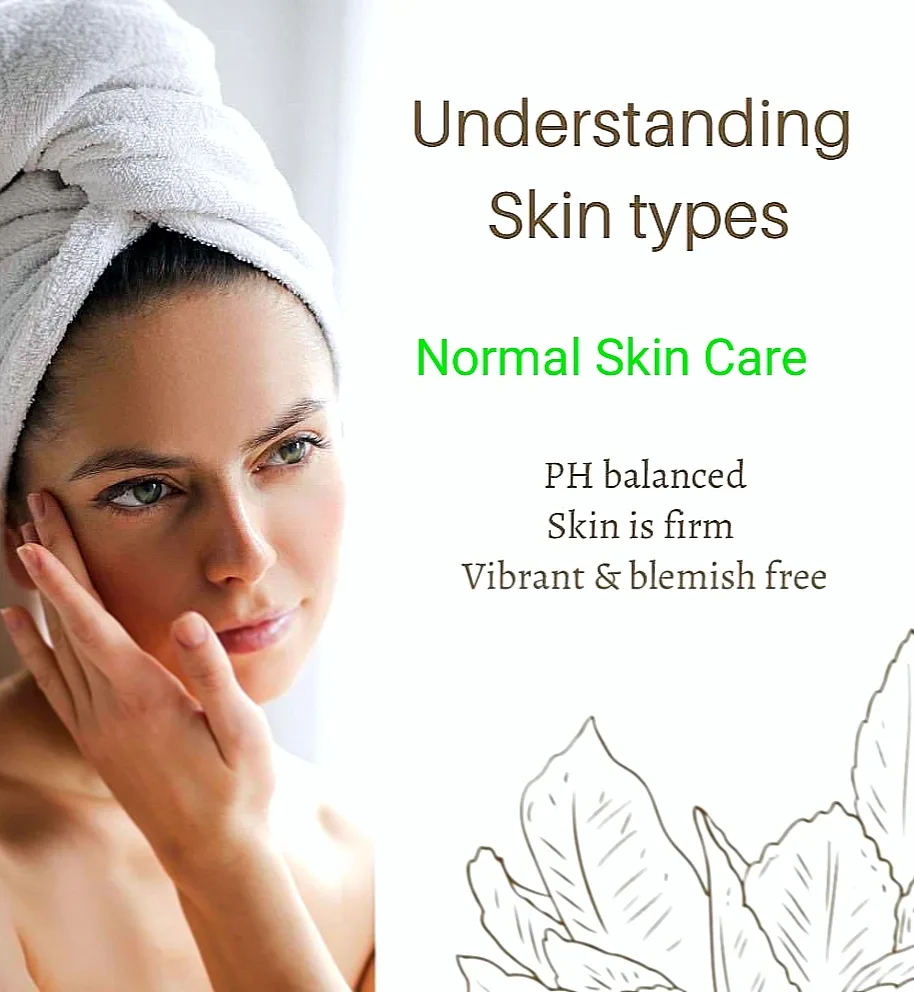Essential oils have a rejuvenating effect on the skin, help you relax, and have many healing properties.
When it comes to making homemade beauty products, there is nothing better than using natural essential oils. They help enhance the aroma of your products. All you need is a few drops of your favorite essential oil to make your skin glowing, glowing and smooth.
There are recipes for body butters, face and body scrubs, hand moisturizers, lotions, soap bars, baby products, shaving creams, serums and more.
This should be noted that you have to dilute pure essential oils with a base oil or lotion.
The 10 Best Essential oils for skin care
Here are the most common essential oils for skin care:
- Lavender essential oil
- Ginger essential oil
- Lemon essential oil
- Vanilla essential oil
- Sweet orange essential oil
- Carrot seed essential oil
- Sandalwood essential oil
- Chamomile essential oil
- Tea tree essential oil
- Peppermint essential oil
1. Lavender Essential Oil
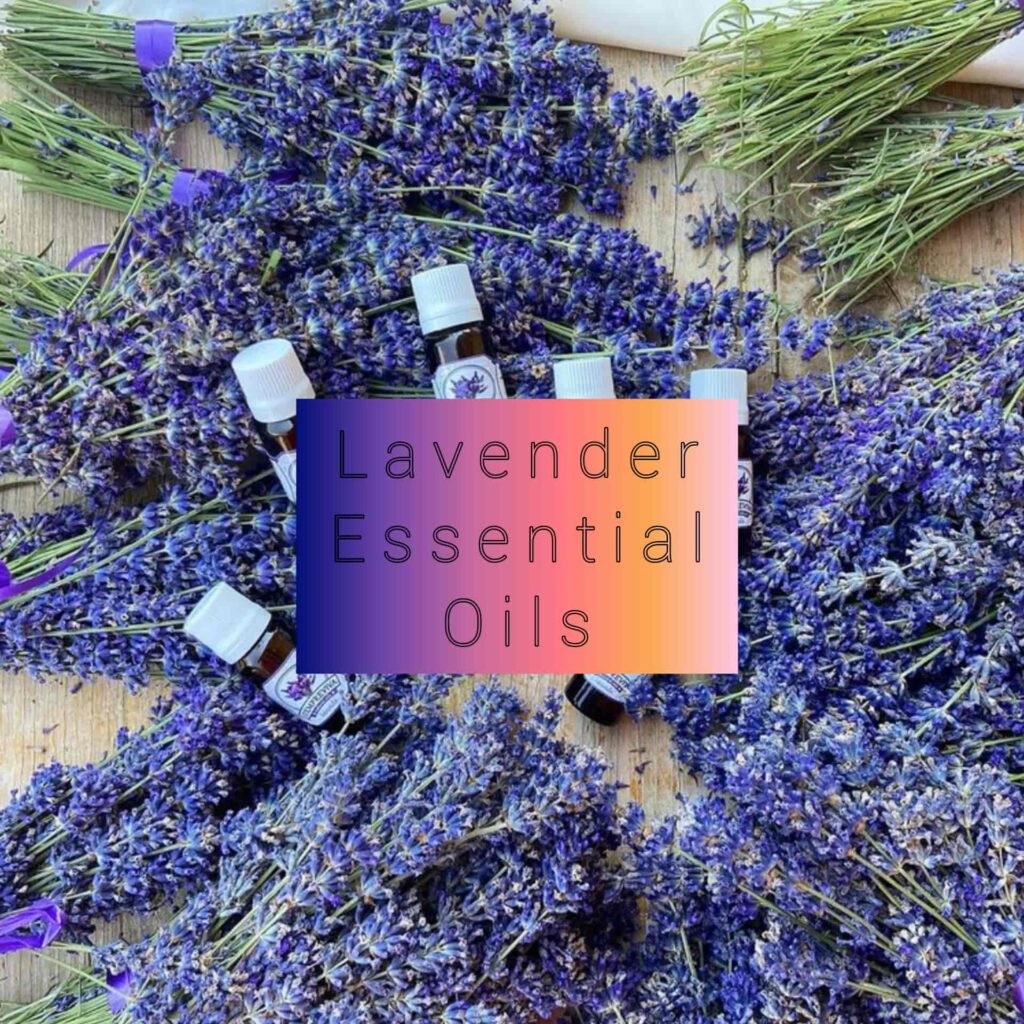
Lavender essential oil has antibacterial and antiviral properties that make it perfect for any skin type. In addition, lavender oil helps to regenerate skin cells and tone the skin, especially mature skin.
In essential oils practices, lavender is a multipurpose oil.
Lavender essential oil works to kill bacteria, and it can prevent and heal acne breakouts. When you apply it on the skin, it opens up the pores and reduces inflammation.
Eczema can appear anywhere on the body, with eczema, the skin becomes dry, itchy and scaly. It may be mild or chronic and appear in many places. Since it has antifungal properties and reduces inflammation, it can help keep eczema at bay.
Lavender essential oil can help even out skin tone as it reduces inflammation. It can reduce discoloration, including dark spots and helps in reducing blemishes and redness. If you have hyperpigmentation on your skin, this essential oil can help with that too.
Free radicals are partly responsible for fine lines and wrinkles on the face, due to the Lavender Essential Oil is rich in antioxidants, which help protect you from free radicals.
If you have a burn, cut, scrape or any other wound, lavender oil can help speed up the healing process. In a 2016 study, researchers found that Lavender Essential Oil promotes the healing of skin tissue.1
Lavender Essential Oil has a dual function on insect bites. This essential oils acts as an insect repellent, and can relieve itching after a bite. Many commercial mosquito repellents contain lavender essential oil.
Insect bites cause redness, itching and pain. They can sometimes become infected. This essential oil helps in relieving insect bites by removing bacteria and reducing inflammation and also helps in relieving pain naturally.
How to use Lavender Essential Oils
- It depends on what you are treating.
- You can apply it to the skin along with a carrier oil to make a lotion.
- If you’re applying it to a damaged area of skin, it’s often best to use a cotton ball, which is cleaner than a fingertip.
- You can also use Lavender Essential Oils as a facial toner by mixing 2 drops of Lavender Essential Oil with 1 teaspoon of witch hazel. Soak a cotton ball in this mixture and then rub it gently on the face.
- For wrinkles and dry skin, you can apply the oil directly with the hands.
- To use Lavender Essential Oil for wrinkles, use a few drops of lavender essential oils along with coconut oil. You can use this mixture as a moisturizer once or twice a day.
2. Ginger Essential Oil
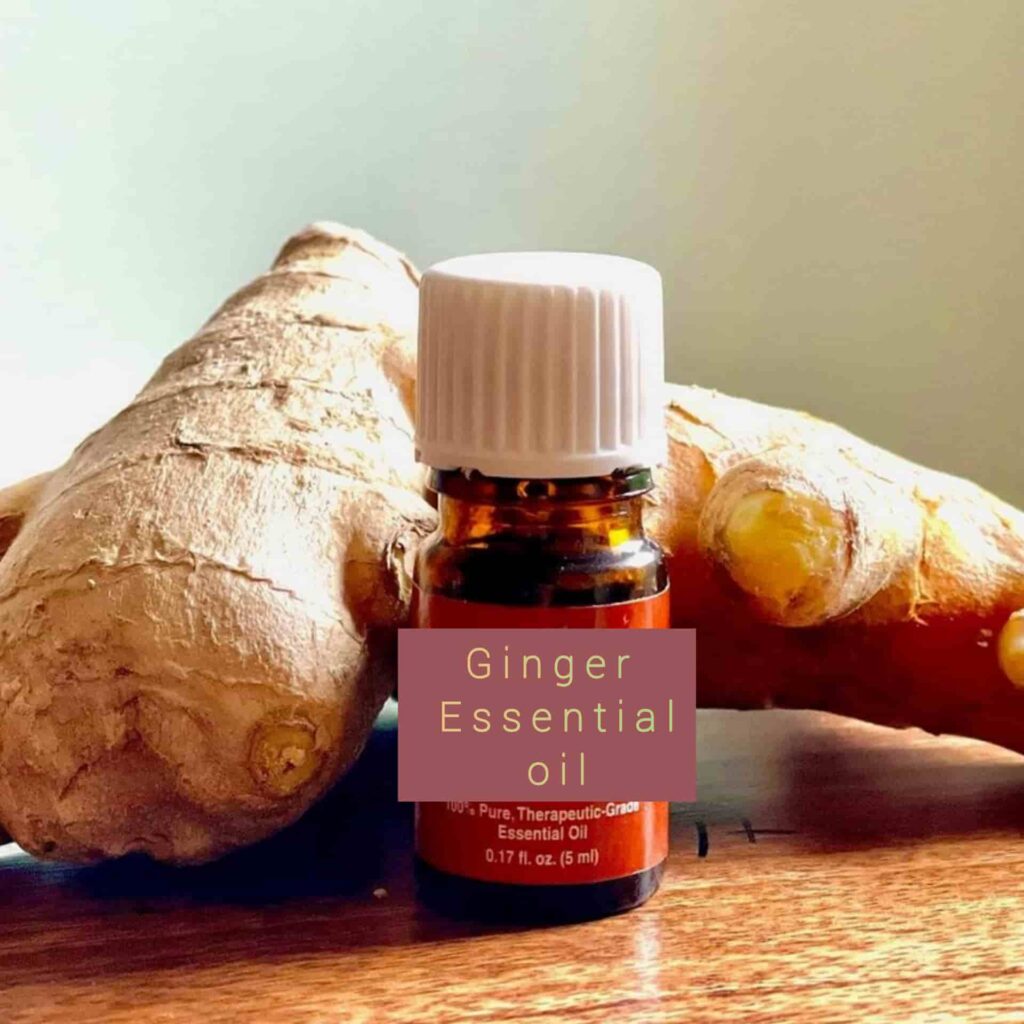
The Ginger essential oil relieves tension, dizziness and anxiety. It is a strong oil, so use it sparingly.
Ginger essential oil provides many natural skin care and beauty benefits when used as an ingredient in skin care formulations.
Ginger essential oil is a natural germ killer. If you use antibiotic soap or some type of hand sanitizer, you can create super bugs that are resistant to antibiotics and will be harder to kill.
Using ginger essential oil doesn’t just kill off weak germs to create super bugs, so it’s a great natural antibacterial agent to use. It is particularly effective against E. coli, Staphylococcus aureus, Candida albicans and Bacillus subtilis.2
The ginger essential oil is high in antioxidants that combat free radicals in the skin and can prevent the visible signs of aging, including fine lines, wrinkles and age spots. Free radicals are molecules of oxygen that have an unpaired electron, this causes oxidative stress in the body. Antioxidants bind with an unpaired electron to make oxygen stable.
Free radicals are also linked to certain diseases like Parkinson’s, Alzheimer’s and cancer. Ginger essential oil for skin helps naturally boost antioxidants for better looking skin.
Ginger essential oil also naturally contains relief from anxiety. It has been shown to reduce anxiety naturally in animals, and it may also help reduce anxiety in people. Ginger works by activating serotonin receptors in the brain, which makes you feel good.
It can help improve mood, and it can also reduce pain by reducing anxiety levels.
Ginger essential oil also helps reduce muscle cramps when used topically, so ginger essential oil benefits include taking care of your body afterward. It can have implications for sore muscles, menstrual cramps, abdominal cramps and back pain. It can also help soothe sore muscles after exercising.
Along with being a natural anti-inflammatory, ginger essential oil can promote circulation, which can ease muscle cramps. The warming effect is a benefit of ginger essential oil that can help relax muscles to reduce cramps.
The anti-inflammatory properties of ginger can help reduce the pain and swelling caused by muscle aches, arthritis and migraines. When you use your favorite ginger essential oils for sore muscles, you may also find it effective in reducing the pain of fibromyalgia when it flares up.
Ginger essential oil is a natural anti-inflammatory and contains several natural compounds that are natural anti-inflammatory. One of these compounds is zingiban, which helps relieve migraine pain without any side effects.
How to use Ginger Essential Oils
- Anti-aging:
- Since ginger essential oil has high in antioxidants, it can help prevent the signs of aging.
- Use it topically to prevent free radicals that can cause fine lines and wrinkles.
- It can also help increase skin elasticity and tone the skin.
- Fading Marks:
- Ginger essential oil can help reduce scars and lightly pigmented areas on the skin, due to its toning and antioxidant properties.
- Cellulite:
- Ginger essential oil can boost circulation and tone the skin naturally.
- It can help reduce cellulite and make skin appear more toned.
- Hair growth:
- This essential oil can help encourage the body to grow more hair.
- Ginger is hot, so it stimulates the scalp. It promotes circulation, which can lead to more hair growth over time.
- Using ginger essential oils for hair can lead to thicker hair over time.
- Dandruff:
- Dandruff is caused by fungus on your scalp.
- Since ginger essential oil is naturally antimicrobial, it can kill fungus, treat dandruff and prevent flakes.
- Diffuser:
- Diffusers are a great way to add pleasing scent to a room.
- In some cases, essential oils may need to be diluted in water.
- Always be sure to follow the instructions that came with your diffuser carefully.
- Steam inhalation:
- Ginger essential oil can be inhaled in steam.
- Heat the water till it boils and keep it in a bowl.
- Add a few drops of ginger oil to lukewarm water. The University of Minnesota Center for Spirituality and Healing (CSH) recommends starting with just one to two drops.
- Tie a towel over your head.
- Keeping your eyes closed, place your head over the bowl of steam and take deep breaths.
- Spray:
- Ginger essential oils can be used in a spray to freshen the air in a room.
- Add ginger oil to the water. The NAHA (National Association for Holistic Aromatherapy) recommends using 10 to 15 drops per ounce of water.
- Add a dispersing agent such as Solubol if you wish, it can help distribute the essential oil in the water.
- Shake and spray, shake before every spray.
3. Lemon Essential Oil
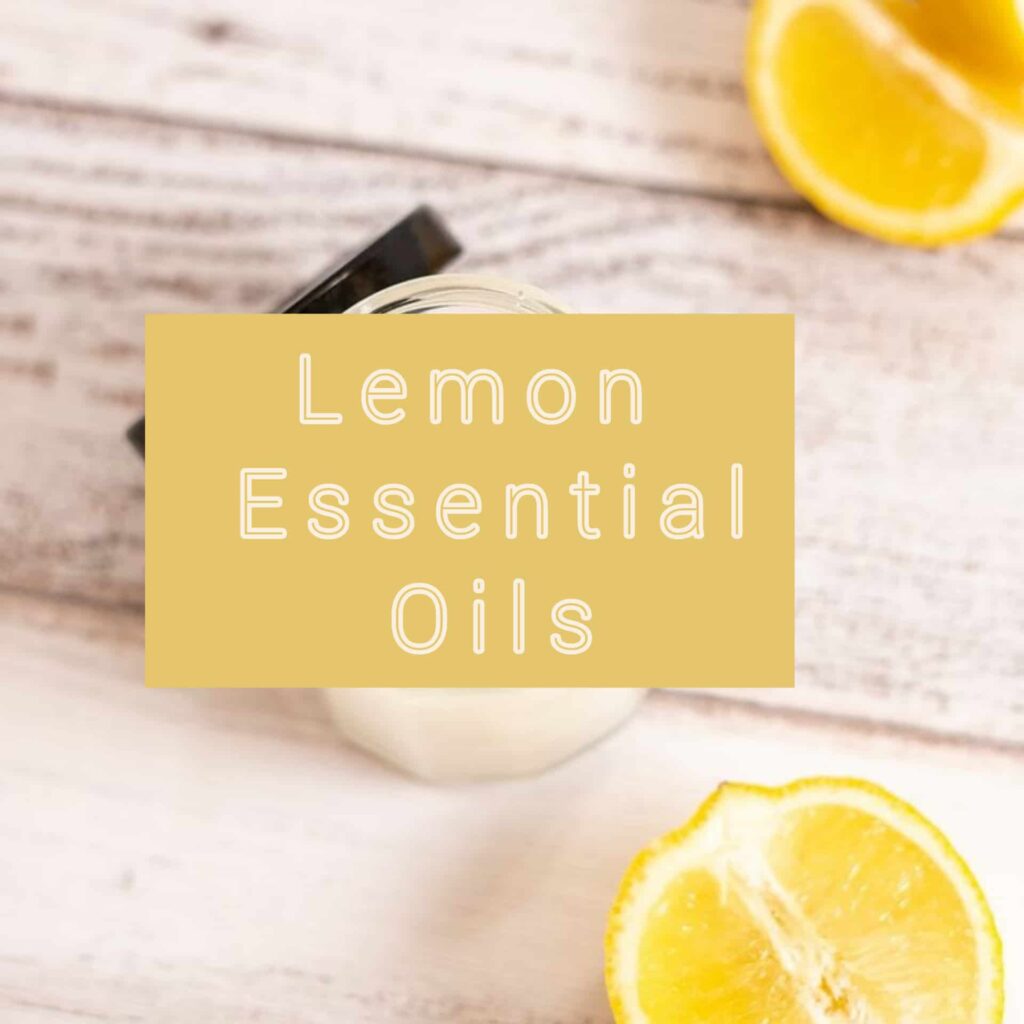
Lemon essential oil is perfect for dull skin. Thanks to its antiseptic properties, lemon essential oil is often a key ingredient in many household products.
Based on both scientific research and anecdotal accounts, lemon oil can have great benefits when it comes to skin care such as absorbent, antibacterial3, antifungal (such as against Candida yeast4), astringent, conditioning, aromatic, and helping to reduce hyperpigmentation.
Two properties of interest in lemon essential oil if you have acne-prone skin are astringent and antimicrobial. Together, these properties can potentially reduce inflammation and P. acnes, the bacteria that causes inflammatory acne. Astringents are also known to get rid of dead skin cells that clog pores. The properties of lemon oil that make it mildly exfoliate can also reduce hyperpigmentation caused by acne.
Note: When used properly, lemon oil can be safe for the skin. It is always a good idea to do a patch test before using any form of lemon essential oil. If you don’t see improvement in your skin after a few weeks, it may be time to see a dermatologist. They can help you determine the best approach and products for skin care goals and needs.
How to use Lemon Essential Oils
The proper use of lemon essential oils depends on what you are using it for.
- Acne and acne scars:
- When using lemon oil for acne and acne scars, one way is to use it at night.
- Mix a small amount of non-comedogenic oil with 1 drop of lemon oil.
- Apply to a cotton ball and dab gently on the affected area of skin.
- Leave for 2 to 5 minutes.
- Wash your face with a normal cleanser and follow any other step of the skin care routine.
Note: The downside is that lemon oil can be too strong, which can leave the skin red and peeling. For this reason, you may want to start with daily applications only a few times a week.
- Facial cleanser:
- Some over-the-counter face washes contain lemon extract to enhance the cleaning properties of the products.
- If you’re considering adding lemon oil extract to your own face wash routine, mix a drop of the oil in a small amount on hand before use.
Note: Since lemon oil can potentially dry out the skin, you can try this method once a day to start with. If you experience redness and irritation, discontinue use completely.
- Bath enhancer:
- A hot bath by itself can relax muscles and be therapeutic.
- As a bonus, citrus-based essential oils like lemon can also boost mood and make you feel less tired.
- To use lemon oil in the bath, mix 5 to 10 drops of essential oil in a cup of carrier oil.
- Pour this mixture into a bathtub filled with warm water.
Note: You can use this method as many times as you want, but you should stop if any signs of irritation appear.
4. Vanilla Essential Oil
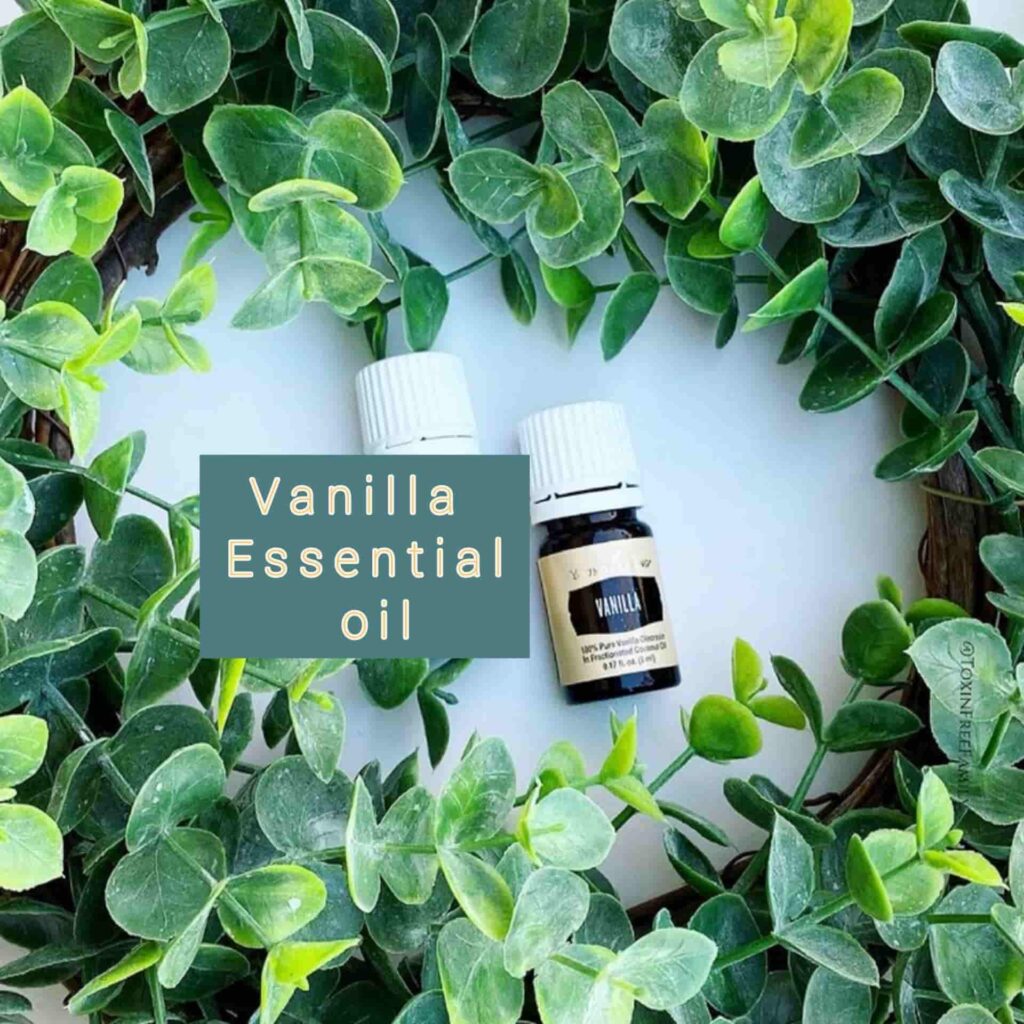
Vanilla essential oil is used worldwide for its refreshing scent in household products. The oil has antioxidant, anti-carcinogenic and antidepressant properties.
Essential oils comes to handy, when it comes to aromatherapy, according to an animal study in the Indian Journal of Pharmacology, vanilla at 100 mg/kg exhibited potential antidepressant activity. Vanilla’s calming properties elevate one’s mood and it can reduce anger, tension, tension and irritability.5 6
Vanilla essential oil can effectively reduce fever by fighting infection. Essential oil may contain components that fight infection. Also, being a sedative, it can reduce inflammation caused by flushing, so it is also considered an antiphlogistic.7
According to a study in Oxidative Medicine and Cellular Longevity, vanillin has potential anti-mutagenic properties and may inhibit the mutation factor in colon cancer cells. Further studies are needed to know its therapeutic potential in the treatment and prevention of cancer. Patients with impotence, erectile dysfunction, rigidity, or loss of libido can be given a mixture of vanilla essential oil, which provides relief from their problems.8
This oil may stimulate certain hormones, such as testosterone and estrogen, thereby promoting sexual behavior. Plus, according to legend, wine mixed with ginger, cloves, cinnamon, vanilla and sugar is probably the perfect blend to enhance sexual mood.9
The antioxidant property of vanilla essential oil can neutralize free radicals and protect the body from wear and tear and infection. It can also repair damage already done to the body.10
How to Use Vanilla Essential Oils
- Vanilla Essential oils are unsuitable for aromatherapy because it is thick and sticky. You may need to heat it for the oils to soften and become liquid.
- The essential oils, when mixed with other scented oils, makes a great cologne and oil blend.
- It has a smoky scent compared to the essence used in baking.
- Vanilla Essential oil is known to have potential aphrodisiac properties. So, it would be best to use it as a fragrance in oil mixture.
5. Sweet Orange Essential Oil
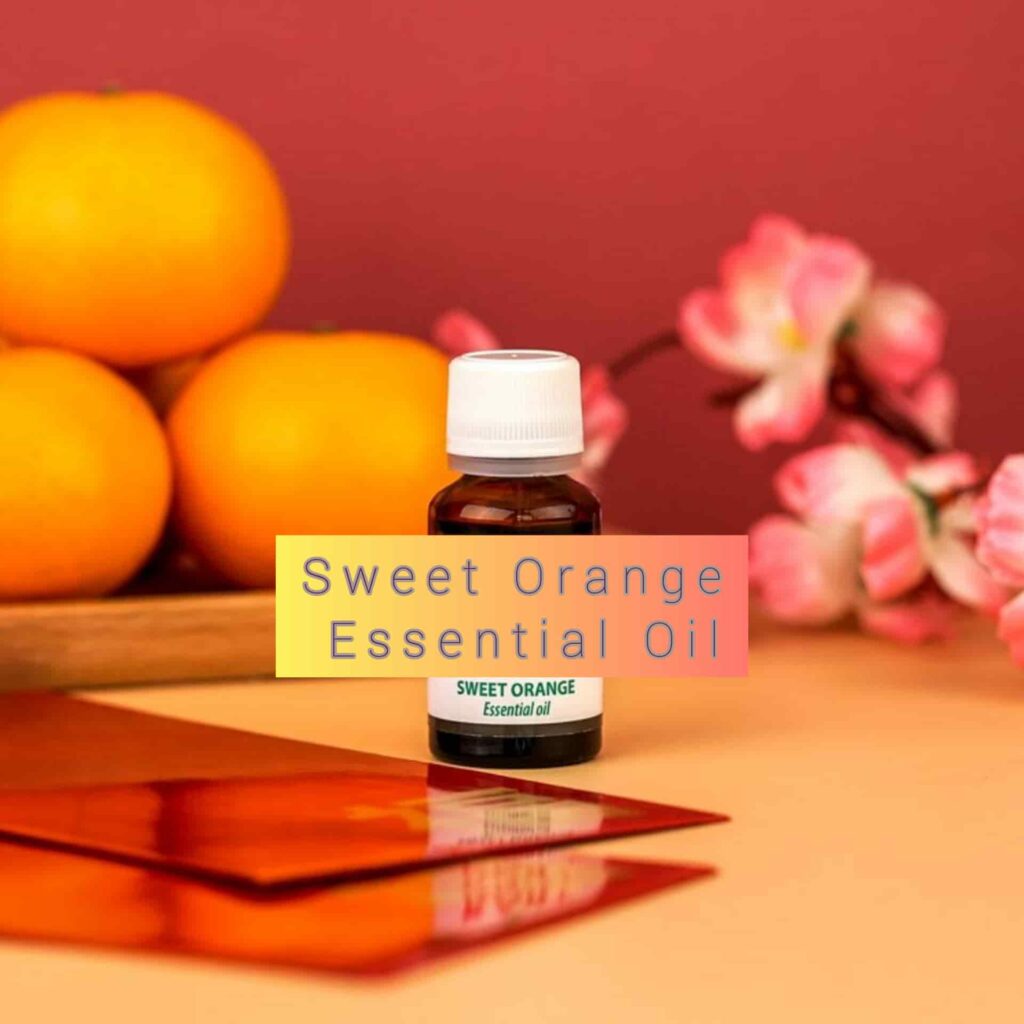
Sweet orange essential oil is commonly used in aromatherapy, if you can not tolerate citrus essential oils, please avoid orange oil.
Sweet Orange Essential Oils have a variety of uses, it:
- Reduces dark spots and blemishes through Vitamin C11
- Fights free radicals to prevent premature skin aging
- Antibacterial properties help treat acne
- Increases circulation in the skin
- Promotes cell growth and collagen synthesis
- Shrinks large pores and firms the skin (astringent)
- Controls excess oil build-up on the skin
- Acts as anti-depressant and anti-anxiety in aromatherapy
- Has antiseptic healing properties
- Reduce pain, swelling or inflammation
- Relieves upset stomach
- Lift the mood or reduce stress12
- Use as a Natural Household Cleaner
- Add a pleasant scent to a room or to products such as perfumes and cleaners
- Taste a variety of foods and beverages
Adding this essential oils to your diet can help protect and protect the epidermis from infection with bacteria, and the lovely smell will help motivate you to use the product consistently!
It may be effective in inhibiting the growth of certain types of bacteria and fungi.13 14 15 16
How to use Sweet Orange Essential Oils
Essential oils are especially wonderful because you can use sweet orange essential oil to maximize its benefits.
- Diffuser:
- Fill your diffuser with water, add two to three drops of sweet orange essential oil, turn on the diffuser to set a calming mood.
- Skin care:
- Add three to four drops of sweet orange essential oil per 10 ml of moisturizer or carrier oil to benefit the skin.
- Hair care:
- To treat your hair, add three to four drops of sweet orange essential oil per 10 ml of shampoo or conditioner.
- Massage:
- Mix three drops of sweet orange essential oil per 10 ml carrier oil like castor oil and massage into sore muscles for soothing relief.
- Bath oil:
- Add four to five drops of sweet orange essential oil to your bath water so you can get into a luxurious spa environment, reduce stress, and treat your skin all in one go.
- All-Natural Cleaner:
- For a great kitchen cleaner, mix 15 drops sweet orange essential oil in 1 cup white vinegar, 1 cup water, and tsp natural dish soap and spray it onto surfaces for a completely natural cleaning.
Note: That being said, remember that essential oils are for external use only and should never be ingested. You should always do a patch test on your skin before using it topically to check for any adverse reactions. Essential oils can be applied to the skin as long as you dilute it in a carrier oil.
Note: While sweet orange oil is not considered phototoxic, some citrus fruit oils, such as lemon, lime, bitter orange, bergamot, etc., can cause phototoxicity, meaning they are best applied at night.
Note: Phototoxic oils can pose a risk to the skin when exposed to the sun, making it more prone to sunburns than usual. If you are using too many products with citrus oils at the same time, or using too much of the same product, you should use sunscreen during the day to protect against UV damage!
6. Carrot Seed Essential Oil
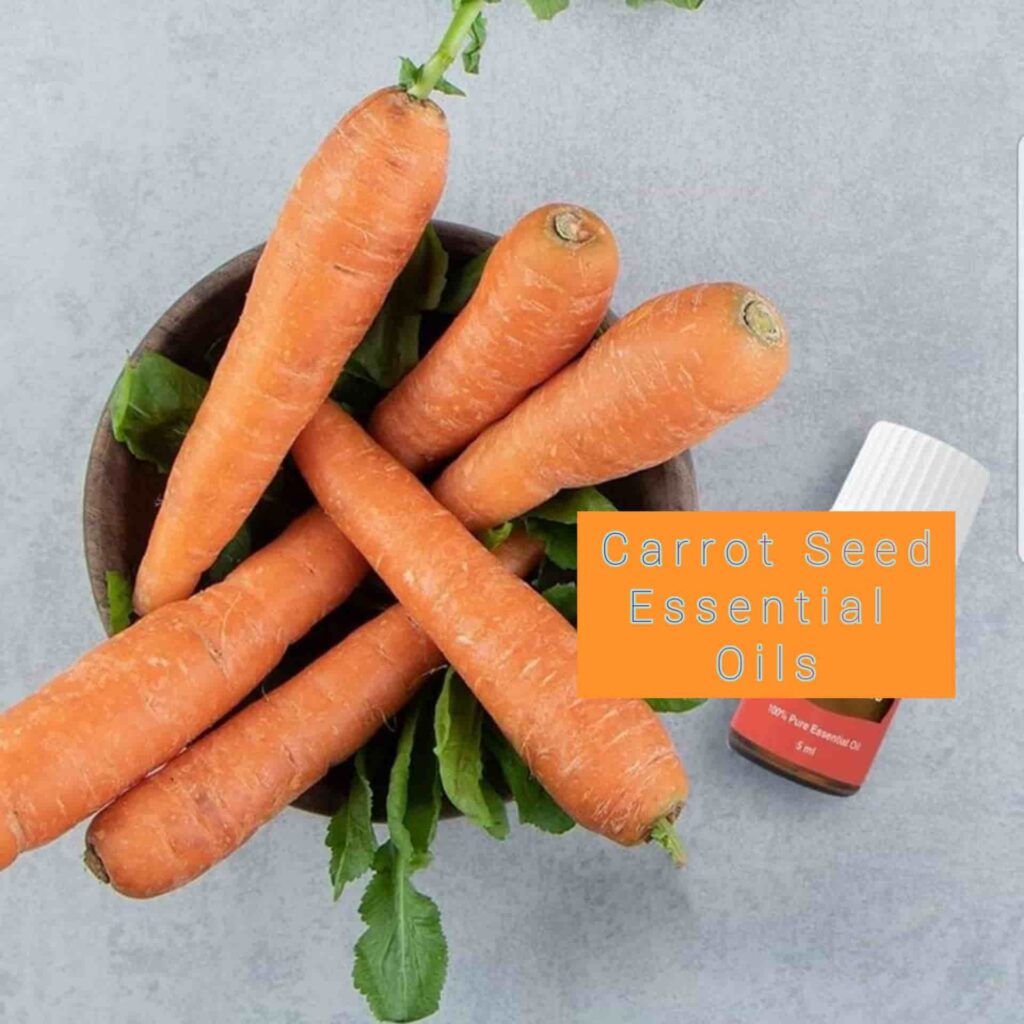
Carrot seed essential oil is an anti-aging ingredient as it works wonders for mature skin and wrinkles. It also helps in curing burns, psoriasis, dermatitis, skin rashes etc.
Carrot seed essential oil is effective against certain types of fungi and to a lesser extent against yeasts such as Candida albicans and Aspergillus. Research shows it can inhibit some types of fungi that grow in plants and those that grow on the skin.
Carrot seed essential oil may fight certain bacterial strains, such as Staphylococcus aureus, a common skin bacteria, and Listeria monocytogenes, a bacteria that causes food poisoning.
Carrot seed essential oil contains a compound called umbelliferone, or 7-hydroxycoumarin, a compound that absorbs UVB light. It is commonly used in sunscreens.
While carrot compounds are found in sunscreens, there is no evidence that carrot seed oil is safe to use as a sunscreen alone. Although it may block UVB light, no evidence shows it can prevent sunburns or sun damage, or protect against skin cancer.
Because carrot seed essential oil absorbs UVB light, it may also help with hyperpigmentation.
Carrot seed essential oil is rich in several vitamins:
- Vitamin A, which slows down the skin’s aging clock
- Vitamin C which increases collagen production
- Vitamin E that moisturizes the skin and smoothes lines
Essential oils are also known to stimulate cell regeneration, which gives you supple skin.
With an earthy scent, along with anti-inflammatory properties, carrot seed essential oil helps heal the skin in a number of ways. Using essential oils soothes the skin by reducing redness, irritation, acne and acne scars on the face. By eliminating them, it helps in keeping the skin calm and clean.
It has powerful moisturizing properties, which make it effective for fighting excessive sebum production. Carrot Seed Essential Oil does not clog pores and suits all skin types, and keeps it moisturized naturally.
How to use Carrot Seed Essential Oils
- Face scrub:
- Prepare from coffee, coconut, carrot seed essential oil and honey. In the scrub coconut is a natural moisturizer, honey heals skin, coffee helps get rid of dead skin cells, and carrot seed essential oils repair sun damage and eliminate wrinkles.
- To make this all-rounder scrub, put 2 tablespoons of coconut oil and 2 teaspoons of honey in a bowl.
- Add 4 tbsp coffee grounds and mix all these ingredients.
- When done, add 8 drops of Carrot Seed Essential Oils to it and blend again.
- Store in a clean jar.
- To use this scrub, gently apply it all over on your face and neck and leave it on for a few minutes.
- Wash it off with warm water and repeat twice a week for best results.
- Face mask with lavender oil:
- Preparing a face mask with lavender essential oil helps you to get flawless skin and a lighter complexion.
- Take equal quantity of lavender essential oils and carrot seed essential oils and mix them well to prepare a smooth mixture.
- Apply it evenly on your face and leave it on for 20 minutes.
- Wash it off with warm water and apply moisturizer if necessary.
- Doing this regularly will give you glowing skin.
- Face mask with sesame oil:
- With its high SPF, there is no doubt that carrot seed oil can be used as a sunscreen.
- To protect your skin from sun damage and block harmful UV rays, mix carrot seed essential oils with a few drops of sesame oils and apply it on your skin to protect the skin.
- Note: If you have oily skin, avoid using carrot seed essential oil and sesame oil as sunscreen.
- Face Mask with Aloe Vera:
- The mask uses to get hydrated, glowing skin. This face mask will rejuvenate your skin, restore its moisture and make you feel beautiful.
- All you have to do is mix 1 teaspoon of multani mitti with 1 teaspoon of aloe vera gel and 2-4 drops of carrot seed essential oils.
- Mix all the ingredients to make a paste and apply evenly on the face.
- Wash it off after 15 minutes.
Note: Too many essential oils are irritating to the skin and can cause rashes and sensitivity. While carrot seed essential oil works surprisingly well for the skin, you must be careful about its use, it is only mildly irritating.
Note: Since essential oils are not intended for ingestion, and many studies of carrot seed oil were done in vitro or on animals, it is important to consult a doctor before using it to treat infection or disease.
Note: One of the best ways to ensure that it does not affect the skin adversely is to do a patch test. You can do this by putting a drop of carrot seed essential oil on your forearm. Leave it for at least 30 minutes. If your skin is allergic to it, it will react quickly to it.
7. Sandalwood Essential Oil
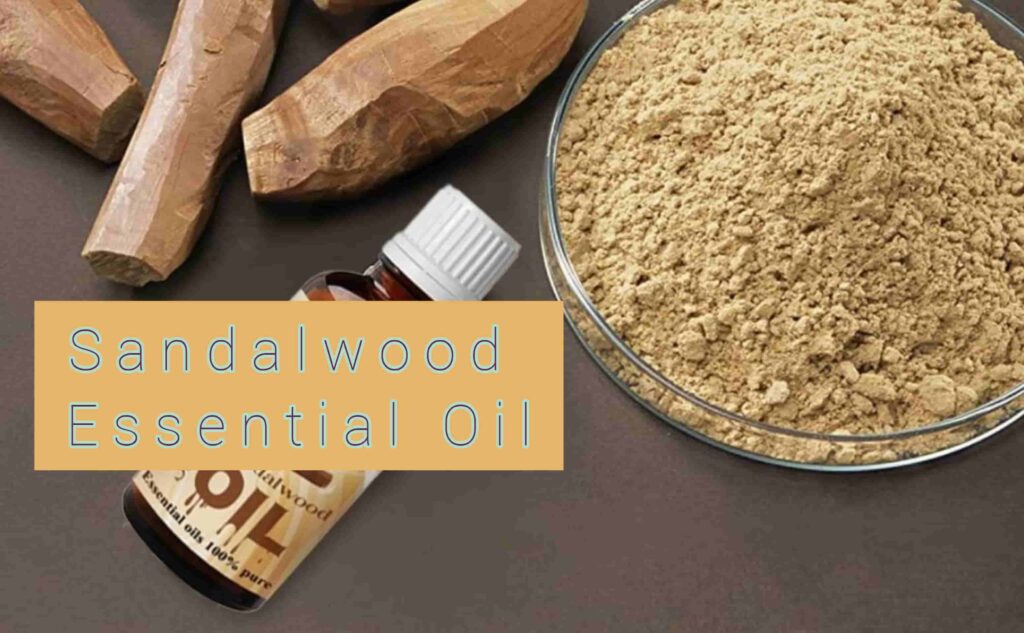
Sandalwood essential oil maintains balance and moisture in the skin. In addition, sandalwood essential oil relieves body odor and is high in antioxidants that can reduce the damage caused by free radicals.
Sandalwood is effective for reducing anxiety and stress. It can have a sedative effect, reduce wakefulness, and increase non-REM sleep time, which is great for conditions like insomnia and sleep apnea.
Eczema and dermatitis causes the skin irritation, itching, and sometimes bleeding. The anti-inflammatory and anti-microbial quality of the oil can be of immense benefit in both conditions. It may further help with other skin problems such as psoriasis, molluscum contagiosum and warts.1718
The problem of tan and pigmentation is common in summers. Sandalwood essential oil has exfoliating and astringent properties that remove tan, dead skin cells, pigmentation and redness from the skin.
Rich in antioxidant and toning properties, sandalwood essential oil fights wrinkles, dark circles and fine lines. It reduces the damage caused by environmental stress and free radicals, thus preventing the signs of ageing. In addition, sandalwood oil can also prevent oxidative stress and repair damaged skin tissue.1920
Pimples and pimples usually leave unpleasant dark spots, marks and spots. Sandalwood essential oil soothes the skin and reduces scars and scars much faster than other products.
With its anti-inflammatory and skin-cleansing properties, sandalwood essential oil can help clear up acne and pimples and soothe the skin. Regular use of this oil can help prevent further acne breakouts.21 22
How to use Sandalwood Essential Oils
- Anxiety and stress:
- Add 2-3 drops of sandalwood essential oils to your warm bath before sleeping or sprinkle it on your pillow for better sleep.
- Rubbing a few drops of sandalwood essential oil on the back of the neck also provides good sleep.
- Inflammation, eczema, psoriasis, and wounds:
- Dilute sandalwood essential oils with a carrier oil such as rose or almond oil.
- For best results apply it on the affected area twice a day.
- Tan, Dead Skin Cells, Pigmentation and Redness:
- Make a paste using cucumber, curd and sandalwood essential oils and a few drops of lemon juice.
- Apply a thin layer of the paste and leave it on for 25 minutes before rinsing off.
- Use this paste twice a week for best results.
- Wrinkles, dark circles, fine lines and damaged skin tissue:
- To reap the benefits of sandalwood essential oil for anti-aging, you can add a few drops of essential oils to your daily night cream.
- Also, you can apply a paste of sandalwood essential oil, turmeric and honey for 15 minutes before washing it off.
- Use it thrice a week for long lasting effect.
- Acne and Pimples:
- You should dilute sandalwood essential oil with a carrier oil before applying.
- Make a paste of sandalwood essential oils, sweet almond oil and sandalwood powder with rose water.
- Apply it on the blemishes and leave it on for 20 minutes before rinsing off with plain water.
- Use it continuously till you get the desired result.
- Acne Breakouts and Soothing Skin:
- Mix a few drops of sandalwood essential oils with turmeric powder and crushed camphor.
- Apply this paste on the zit, leave it for 6 to 12 hours and wash it off with plain water.
- For experience excellent results, use this remedy for 2-4 weeks.
Note: Sandalwood essential oils are generally considered safe for most users. Still, always check for an allergic reaction before using a new product on your skin. Always do a patch test before applying sandalwood to the skin. Never swallow essential oils or apply undiluted essential oils directly to the skin.
Note: If you have sensitive skin, a 2017 study noted that Indian sandalwood oil may be milder than Australian sandalwood because it does not contain farnesol, a skin irritant found in Australian sandalwood.23
8. Chamomile Essential Oil
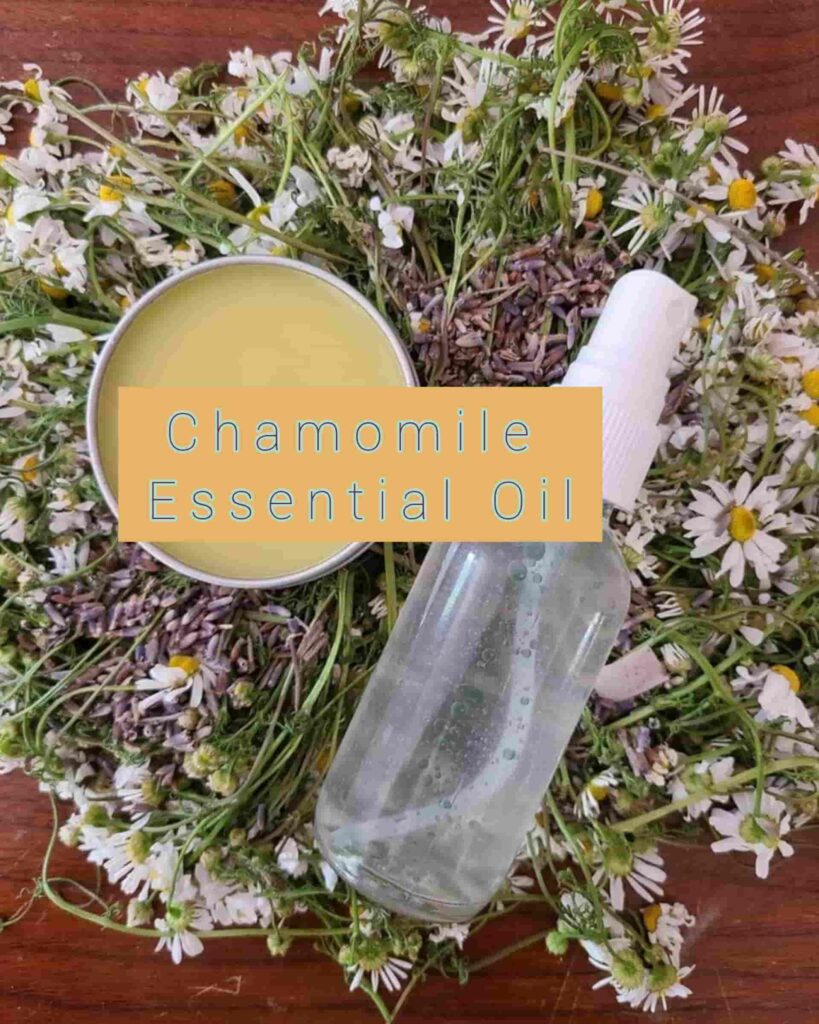
Chamomile essential oil leaves your skin moisturized, smooth and clean.
Chamomile essential oil is quite effective on acne, even as extreme as eczema. This is due to its anti-inflammatory and hydrating properties that work on acne. Applying just a few drops on a clean cloth to the affected area provides immediate relief. It can also be used to reduce redness and scars.2425
This alone should make Chamomile essential oil the king of all essential oils. The primary ingredient of chamomile is bisabolol which is known to help the skin heal faster. Thus, chamomile essential oil is extremely effective in getting rid of light wrinkles and crow’s feet and works like a dream on puffy eyes and dark circles. Plus, it evens out the skin tone – repairs and regenerates the skin.25
Chamomile essential oil, along with coconut oil, works best for dry to sensitive skin. It is known to have anti-inflammatory properties and soothe any kind of irritation. It instantly soothes and moisturizes, giving it a dewy glow.
The essential oils are also known to be a great moisturizing and hydrating agent for the skin, thanks to the large content of fatty acids present in it. These fatty acids help maintain skin elasticity and keep your skin supple and glowing.
How to use Chamomile Essential Oils
- Anti Tanning Remedy:
- To make this face pack, mix a few drops of Chamomile Essential Oils in almond oil and massage it on your skin.
- Leave it on for 10 minutes and then wash off.
- Antiseptic:
- As an ingredient, Chamomile Essential Oil is found in antiseptic products.
- If you ever accidentally cut or damage your skin, or want to get rid of scars, you can apply diluted Chamomile Essential Oil to it.
- Moisturizer:
- To avoid dry and lifeless skin, mix 2 tablespoons aloe vera gel and 1 tablespoon honey in half a cup of chamomile tea.
- Apply it on your face and leave it on for about 15-20 minutes.
- Wash off with lukewarm water.
- Scrub:
- Make the perfect body scrub at home by mixing chamomile tea with 2 tablespoons of oatmeal and a teaspoon of honey.
- Use this mixture to gently cleanse your face and remove all dirt, grime and dead skin cells.
- Not only will it exfoliate, but it will also moisturize your skin.
- Makeup remover:
- To get healthy, soft and glowing skin, it is imperative to remove your makeup properly before hitting the snooze button.
- Chamomile Essential Oil has a high percentage of the good oleic acid and a low proportion of linoleic acid.
- This makes it a lightweight oil that allows the skin to breathe when applied topically. It helps to unclog pores, prevents breakouts, and signs of premature aging.
- Simply, mix 1 teaspoon of chamomile herb in 100 ml of coconut oil. Leave it for at least 4 to 5 hours.
- Add 2 tbsp olive oil and 1 tbsp yellow beeswax to it.
- Wipe off your makeup with this mixture.
Note: Essential oils are very concentrated and should not be ingested unless you are under the supervision of a qualified professional. Some are poisonous too. If you want to use chamomile internally, consider using chamomile tea instead.
Note: Essential oils may cause skin irritation in some people. If you’re concerned about your sensitivity to the oil, test a little diluted chamomile essential oil on the inside of your elbow before using it on other parts of your skin. Discontinue use if you notice any redness, itching, burning or swelling. This may be more likely if you are allergic to plants related to chamomile such as daisies, ragweed, or marigolds.
Note: In rare cases a serious allergic reaction called anaphylaxis can occur, which is a medical emergency. Look for signs of difficulty breathing, sore throat, coughing or wheezing, chest tightness, rash, vomiting, and diarrhea.
Note: Chamomile may interact with the medications cyclosporine and warfarin. If you are taking prescription medications, talk to your doctor before using chamomile essential oil.
Note: If you are pregnant or breastfeeding and want to use chamomile essential oil, talk to your doctor first to see if it is safe for you to use chamomile essential oil.
9. Tea Tree Essential Oil
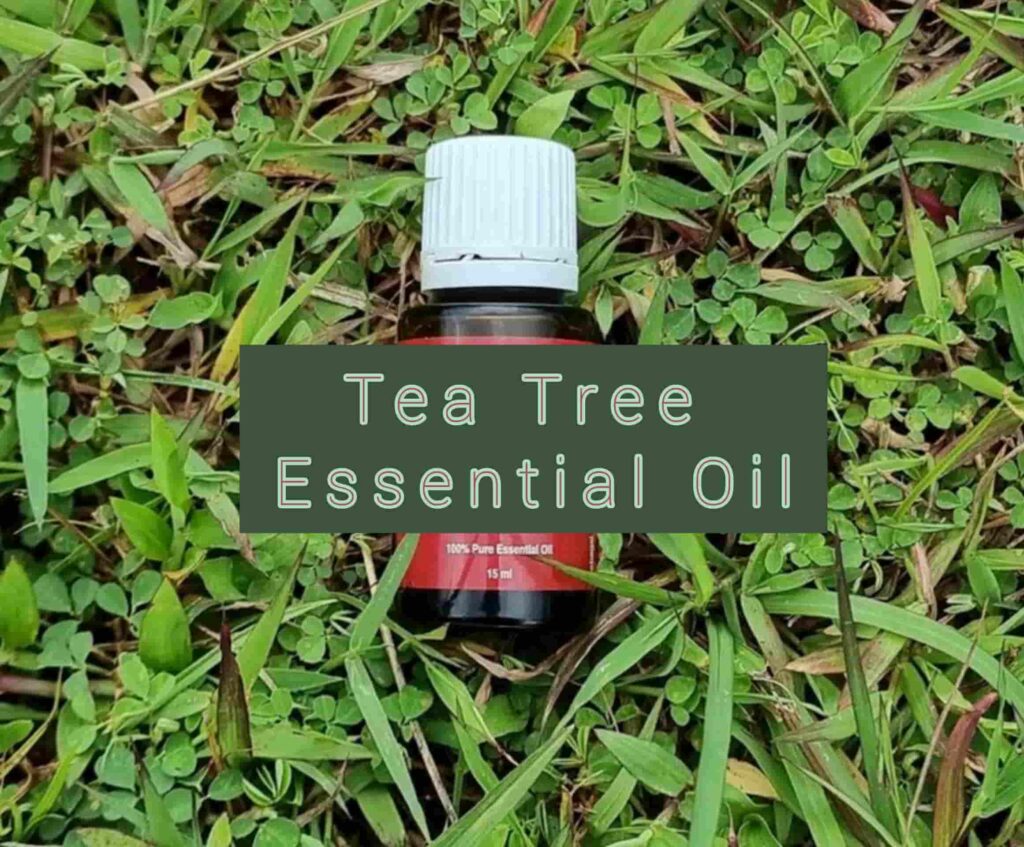
Tea tree essential oil has antiviral, antifungal properties, and it reduces acne and dark spots as well as other blemishes. Tea tree oil is great for dry skin, rashes and skin irritations.
Body odor is a major problem that bothers many people, especially in summers. Any amount of antiperspirants, shower gels or talcum powder has no effect. The antibacterial properties of tea tree essential oil eliminate odor-causing bacteria and go a long way in reducing the chances of body odor.
With the increase in insect-borne diseases, essential oils only make sense to properly protect your skin, especially if you’re going to be outdoors. Enriched with antiparasitic benefits, Tea Tree Essential Oil not only repels mosquito and other insect bites, but the anti-inflammatory and healing properties soothe and soothe freshly cut skin.
Essential oils help in dealing with serious skin conditions like eczema and psoriasis quite effectively. Combining tea tree essential oil with another carrier oil can help soothe irritated and inflamed skin in just a few uses.26
Applying tea tree oil-infused products not only helps to mattify your skin without making it dry, but also moisturizes your skin, leaving it looking healthy and supple.
Tea tree essential oil has the ability to heal minor wounds, cuts and burns. Its anti-inflammatory and antiseptic properties speed up the healing process and protect the wound from scarring. From cuts and scrapes to minor wounds, essential oils are an effective way to speed up the healing process of wounds.27
This is one of the richest natural sources of antibacterial and anti-inflammatory properties. Tea Tree Essential Oil makes an incredible treatment against acne and acne scars, and also works to soothe redness, unclog pores, and heal existing acne. Using essential oils regularly in the skin care routine prevents the possibility of future breakouts, thus promoting clear and flawless skin.
How to use Tea Tree Essential Oils
- Acne face mask:
- This is the easiest face mask, but it has incredible moisturizing and healing properties for people with acne.
- To prepare it, you will need 1 tablespoon honey 2 drops tea tree essential oils.
- In a bowl, mix both the ingredients together and apply it on your face and neck area.
- Leave it for about 15 minutes and then wash it off with a gentle cleanser.
- Apply a little moisturizer to seal the benefits of the face mask into your skin.
- Repeat this every other day for amazing results.
- Nourishing Face Pack:
- Nourishing Face Pack is perfect for people with skin conditions like eczema and psoriasis, this face mask soothes itchy, inflamed skin to leave it properly moisturized and conditioned.
- To prepare it, you will need 2 tablespoons of extra virgin coconut oil and 2-3 drops of tea tree essential oils.
- Mix both the ingredients together and apply it on the affected area.
- Leave it on overnight and wash it off with lukewarm water in the next morning.
- Oily skin face pack:
- Oily skin face pack helps in removing excess oil from the skin, deeply draws out impurities and unclogs pores. It also helps to gently control sebum production to keep your skin matte, prevent acne and excessive dryness to keep skin soft and glowing.
- To prepare, you need 2 tablespoons bentonite clay (you can also replace it with multani mitti), 2 tablespoons plain yogurt, and 2-3 drops of tea tree essential oils.
- Combine all the ingredients in a bowl, mix well and make a thick, lump-free paste.
- Wash your face and spread this face pack all over the neck area of your face to get rid of surface impurities while it is still slightly damp.
- Let it sit for about 20 minutes or until it dries completely and then wash it off with water and a gentle cleanser.
- Don’t forget to apply some moisturizer after this.
Note: Although tea tree essential oil is generally safe when used on the skin of adults, some people may have an allergic reaction. Tea tree essential oil may be unsafe for young children and pets.
10. Peppermint Essential Oil
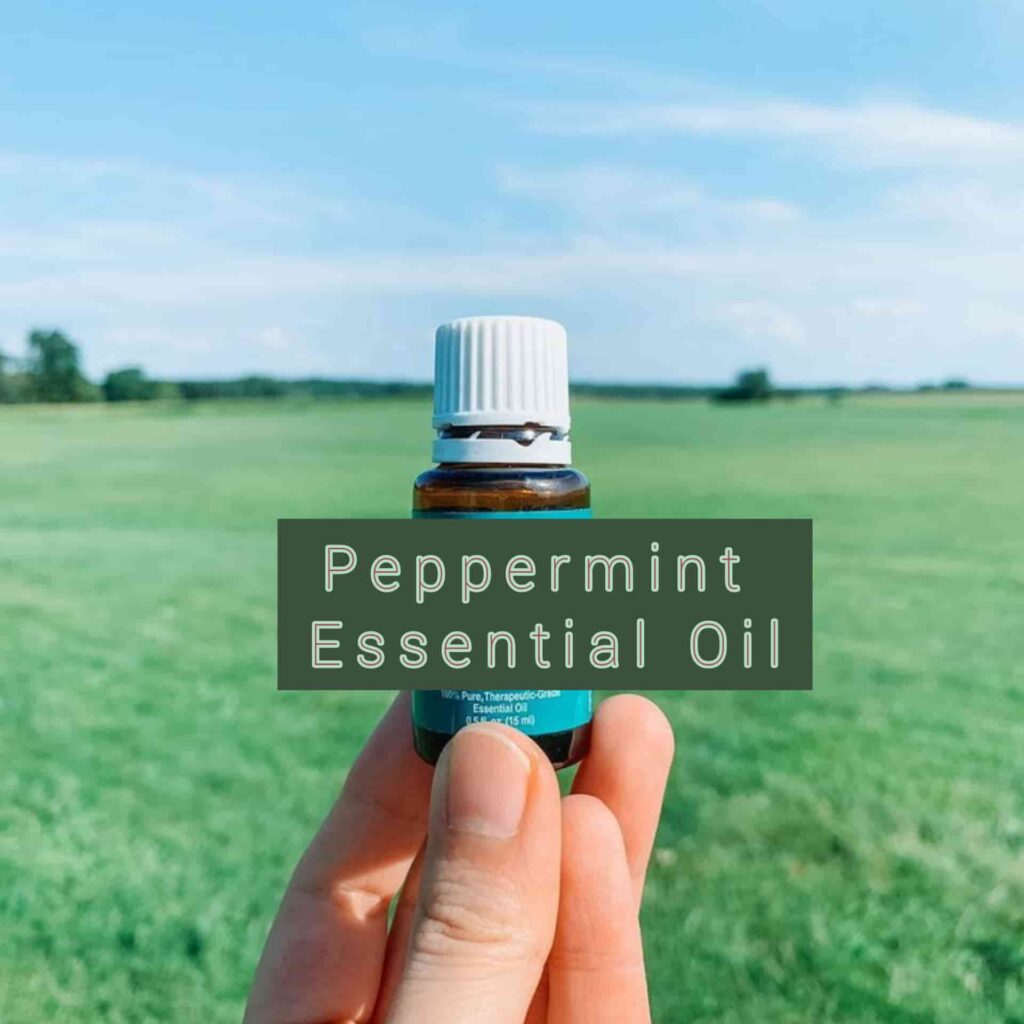
Peppermint essential oil brightens your skin, prevents acne and heals acne scars. It can be used for toners, facial scrubs, and masks.
Peppermint’s soothing and cooling effect makes it an excellent oil for itchy and irritated skin. Due to its antiseptic and antibacterial properties, essential oils are recommended for relief to people suffering from psoriasis. However, peppermint essential oil is potent and therefore should never be applied directly to the skin and without dilution.28
Due to its antimicrobial properties, peppermint essential oil kills acne-causing bacteria. Essential oils balance the production of sebum, which prevents clogging of pores and acne. Peppermint essential oil also forms a protective barrier on the skin, thus preventing external invaders from damaging it.
The antiseptic and anti-inflammatory properties of peppermint essential oil help with dryness and itching of the scalp. When applied topically, it can ward off dandruff and other infections.
Peppermint essential oil has the ability to promote hair growth, when massaged on the scalp, the essential oils increase blood circulation and stimulate the hair follicles, thereby promoting hair growth. Since peppermint essential oil also cleanses the scalp, it promotes healthy and thick hair growth. The strong smell of menthol can also remove lice from the hair.2930
How to use Peppermint Essential Oils
- Hair growth:
- Mix four teaspoons of coconut oil and 5-10 drops of peppermint essential oils in a bowl.
- Massage thoroughly into scalp and hair, leave it on for at least 2-3 hours before rinsing off.
- If possible, leave it overnight and wash your hair with a mild shampoo in the morning.
- Dandruff:
- Heat half a cup of coconut oil in a bowl and let it cool.
- Mix 20 drops of peppermint essential oils, 10 drops of tea tree essential oils and one teaspoon of vitamin E oil.
- Mix well and transfer to store in a bottle.
- Apply well on the scalp and leave it on for a few hours before rinsing off.
- Acne:
- People with oily and acne-prone skin can deal with breakouts and blemishes with the help of a peppermint essential oil mask.
- Mix two tablespoons of grated cucumber juice and clay.
- Add five drops of diluted peppermint essential oils and mix well.
- Apply all over on your face, let it dry completely, then wash off with warm water.
- Repeat twice a week for best results.
- Itchy and irritated skin:
- Mix 40 ml of apple cider vinegar and 30 drops of peppermint essential oils in a bowl of filtered water.
- Mix well and pour into a spray bottle and store it in the fridge and use it on itchy skin.
- You can also use the spray as a toner or facial mist throughout the day.
Note: Although tea tree essential oil is generally safe when used on the skin of adults, some people may have an allergic reaction. Tea tree essential oil may be unsafe for young children and pets.
- BMC Complement Altern Med. 2016; 16: 144. doi: 10.1186/s12906-016-1128-7. PMCID: PMC4880962. PMID: 27229681. Wound healing potential of lavender oil by acceleration of granulation and wound contraction through induction of TGF-β in a rat model. Hiroko-Miyuki Mori, Hiroshi Kawanami, Hirohisa Kawahata, and Motokuni Aoki. Available here: https://www.ncbi.nlm.nih.gov/pmc/articles/PMC4880962/[↩]
- Carbohydr Polym. 2021 Aug 15; 266:118100. doi: 10.1016/j.carbpol.2021.118100. Epub 2021 Apr 24. Alginate-chitosan oligosaccharide-ZnO composite hydrogel for accelerating wound healing. Miao Zhang, Xiaoni Qiao, Wenwei Han, Tianze Jiang, Fei Liu, Xia Zhao. Available here: https://pubmed.ncbi.nlm.nih.gov/34044919/[↩]
- Evid Based Complement Alternat Med. 2017; 2017: 4517971. doi: 10.1155/2017/4517971. PMCID: PMC5435909. PMID: 28546822. Commercial Essential Oils as Potential Antimicrobials to Treat Skin Diseases. Ané Orchard and Sandy van Vuuren. Available here: https://www.ncbi.nlm.nih.gov/pmc/articles/PMC5435909/[↩]
- Mycopathologia. 2014; 177(1): 29–39. doi: 10.1007/s11046-013-9723-3. PMCID: PMC3915084. PMID: 24436010. The Influence of Chemical Composition of Commercial Lemon Essential Oils on the Growth of Candida Strains. M. Białoń, T. Krzyśko-Łupicka, M. Koszałkowska, and P. P. Wieczorek. Available here: https://www.ncbi.nlm.nih.gov/pmc/articles/PMC3915084/[↩]
- Mental Health Information. Statistics. Major Depression. Available here: https://www.nimh.nih.gov/health/statistics/major-depression[↩]
- Chemical Senses, Volume 30, Issue suppl_1, January 2005, Pages i248–i249, https://doi.org/10.1093/chemse/bjh208. Effects of Fragrance on Emotions: Moods and Physiology. Stephen Warrenburg. Available here: https://academic.oup.com/chemse/article/30/suppl_1/i248/270387[↩]
- The Magical Circle School Newsletter October 2017. By Colleen Criswell. ISBN:9781387242160, 1387242164. Format:Ebook. Publisher:Lulu.com. Language:English. Author:Colleen Criswell.[↩]
- Oxid Med Cell Longev. 2016; 2016: 9734816. 2016 Dec 19. doi: 10.1155/2016/9734816. PMCID: PMC5204113. PMID: 28077989. Overview of the Role of Vanillin on Redox Status and Cancer Development. Daniel Pereira Bezerra, Anne Karine Nascimento Soares, and Damião Pergentino de Sousa. Available here: https://www.ncbi.nlm.nih.gov/pmc/articles/PMC5204113/[↩]
- The SAGE Encyclopedia of Alcohol: Social, Cultural, and Historical Perspectives. Sexual Activity and Aphrodisiacs.[↩]
- Front Plant Sci. 2017; 8: 1746. 2017 Oct 12. doi: 10.3389/fpls.2017.01746. PMCID: PMC5644282. PMID: 29075276. Phenolic Profiling for Traceability of Vanilla ×tahitensis. Matteo Busconi, Luigi Lucini, Giovanna Soffritti, Jamila Bernardi,Letizia Bernardo, Christel Brunschwig, Sandra Lepers-Andrzejewski, Phila Raharivelomanana, and Jose A. Fernandez. Available here: https://www.ncbi.nlm.nih.gov/pmc/articles/PMC5644282/[↩]
- Indian Dermatol Online J. 2013 Apr-Jun; 4(2): 143–146. doi: 10.4103/2229-5178.110593. PMCID: PMC3673383. PMID: 23741676. Vitamin C in dermatology. Pumori Saokar Telang. Available here: https://www.ncbi.nlm.nih.gov/pmc/articles/PMC3673383/[↩]
- J Altern Complement Med. 2012 Aug;18(8):798-804. doi: 10.1089/acm.2011.0551. Epub 2012 Jul 31. Effect of sweet orange aroma on experimental anxiety in humansEffect of sweet orange aroma on experimental anxiety in humans. Tiago Costa Goes, Fabrício Dias Antunes, Péricles Barreto Alves, Flavia Teixeira-Silva[↩]
- https://www.ncbi.nlm.nih.gov/pubmed/30022505[↩]
- https://www.ncbi.nlm.nih.gov/pubmed/30109970[↩]
- https://www.ncbi.nlm.nih.gov/pmc/articles/PMC3522527/[↩]
- https://www.ncbi.nlm.nih.gov/pubmed/22583064[↩]
- J Clin Aesthet Dermatol. 2017 Oct; 10(10): 34–39. PMCID: PMC5749697. PMID: 29344319. Sandalwood Album Oil as a Botanical Therapeutic in Dermatology. Ronald L. Moy, MDcorresponding author and Corey Levenson, PhD. Available here: https://www.ncbi.nlm.nih.gov/pmc/articles/PMC5749697/[↩]
- Sandalwood Oil and Turmeric-Based Cream Prevents Ionizing Radiation-Induced Dermatitis in Breast Cancer Patients: Clinical Study. Medicines 2017, 4(3), 43; https://doi.org/10.3390/medicines4030043[↩]
- J Clin Aesthet Dermatol. 2017 Oct; 10(10): 34–39. PMCID: PMC5749697. PMID: 29344319. Sandalwood Album Oil as a Botanical Therapeutic in Dermatology. Ronald L. Moy, MD. and Corey Levenson, PhD. Available here: https://www.ncbi.nlm.nih.gov/pmc/articles/PMC5749697/[↩]
- A glimpse of Ayurveda – The forgotten history and principles of Indian traditional medicine. Yogini S. Jaiswal and Leonard L. Williams. J Tradit Complement Med. 2017 Jan; 7(1): 50–53. doi: 10.1016/j.jtcme.2016.02.002[↩]
- Documenting Grandmas’ prescriptions for skin ailments in Valsad district, Gujarat. Available here : https://www.researchgate.net/publication/292557710_Documenting_Grandmas’_prescriptions_for_skin_ailments_in_Valsad_district_Gujarat[↩]
- Journal of Drugs in Dermatology : JDD, 01 Dec 2012, 11(12):1403-1408. PMID: 23377508. Single-center, open-label study of a proprietary topical 0.5% salicylic acid-based treatment regimen containing sandalwood oil in adolescents and adults with mild to moderate acne. Moy RL, Levenson C, So JJ, Rock JA. Available here: https://europepmc.org/article/med/23377508[↩]
- Sandalwood Album Oil as a Botanical Therapeutic in Dermatology. Ronald L. Moy, MDcorresponding author and Corey Levenson, PhD. Available here: https://www.ncbi.nlm.nih.gov/pmc/articles/PMC5749697/[↩]
- https://www.ncbi.nlm.nih.gov/labs/pmc/articles/PMC3931201/[↩]
- https://www.ncbi.nlm.nih.gov/labs/pmc/articles/PMC2995283/[↩][↩]
- Arch Dermatol Res. 2011 Jul;303(5):333-8. doi: 10.1007/s00403-010-1083-y. Epub 2010 Sep 24. Tea tree oil attenuates experimental contact dermatitis.[↩]
- 11 Dec 2013. https://doi.org/10.1089/acm.2012.0787. The Effect of Tea Tree Oil (Melaleuca alternifolia) on Wound Healing Using a Dressing Model.[↩]
- Clin Cosmet Investig Dermatol. 2016; 9: 333–338. doi: 10.2147/CCID.S116995. Effectiveness of topical peppermint oil on symptomatic treatment of chronic pruritus. Available here: https://www.ncbi.nlm.nih.gov/pmc/articles/PMC5066694/[↩]
- Toxicol Res. 2014 Dec; 30(4): 297–304. doi: 10.5487/TR.2014.30.4.297. Peppermint Oil Promotes Hair Growth without Toxic Signs. Ji Young Oh, Min Ah Park, and Young Chul Kim. Available here: https://www.ncbi.nlm.nih.gov/pmc/articles/PMC4289931/[↩]
- Microvasc Res. 2016 Sep;107:39-45. doi: 10.1016/j.mvr.2016.04.010. Topical menthol increases cutaneous blood flow. Daniel H Craighead, Lacy M Alexander. Available here: https://pubmed.ncbi.nlm.nih.gov/27131832/[↩]



